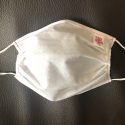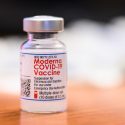COVID questions: Are more severe colds and flu in our future?
This ongoing series answers questions about COVID-19 and the pandemic. If you have a question to submit, please email it to covid19update@uc.wisc.edu. See answers to previous COVID questions, and visit our COVID-19 impact site.
After nearly two years of protecting our immune systems due to masking and social distancing, does discontinuing masking put us at risk of contracting infections (such as colds and flus) that are more severe?
The short answer is no, but there are two important points in the question that should be clarified.
The first is that masking and social distancing do not impact how our immune system functions. It is still functioning normally beneath our masks. Doctors often reassure parents of small children who are frequently getting sick that the kids are “building their immune system,” but a better analogy would be that the kids are building a collection of viruses, like a baseball card collection. One of the three major branches of the human immune system can use this collection to recognize and fight off repeat illnesses quickly. Those of us with the COVID-19 baseball card (via illness or vaccine) will have a faster ability to fight that virus if we see it again, which collectively we refer to as immunity. But don’t worry, we have all still encountered plenty of antigens (baseball cards) during this pandemic.
We have not all been collecting the cold and flu cards at the normal rate, though, because our masks have decreased their spread as well as COVID-19. So, the second important point is hidden in the idea that if we as a group are not interacting with a virus, it will get stronger. And actually, it’s the opposite! Viruses can get stronger when a random mutation causes it to have a better shot at surviving. Those mutations take place inside a host (let’s say humans), and that means the more people that get sick, the more chance there is for a virus to become stronger.
Globally, some people did still get the cold and flu during this pandemic, so there will be new strains that we will be exposed to when we begin to mask less. But those strains are no more likely to be severe than any other random year. And as we saw with the first point, our immune systems will be ready for the challenge, just like any other year.
So what is different? The difference we may see from masking less is similar to when a child starts school for the first time — we might get viral illnesses more frequently for a while. We weren’t exposed to the new strains staggered over time, so the time between new exposures is likely to be shorter. And our human brains may jump to the conclusion that we are not as strong as we once were. But that’s not true. We are just catching up on the backlog.
—Devlin Cole, Preventive Medicine Chief Resident, School of Medicine and Public Health



